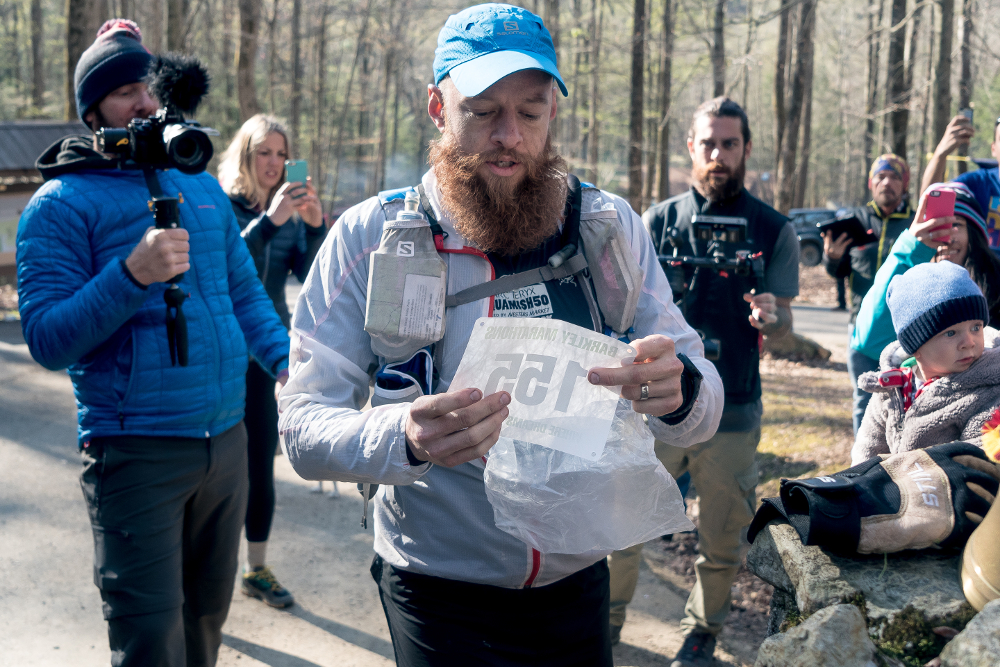Gary Robbins won’t settle for anything less than a finish at the Barkley Marathons
"I was far too close to the impossible last year to not want to make it to the end this year."


It’s perhaps the toughest ultramarathon in the world.
Only 14 runners have finished the Barkley Marathons since the famed 100-plus-mile race began in 1986. Canadian Gary Robbins looks to add his name to the list of alumni in 2017 when he will contest the ultramarathon in Frozen Head State Park in Tennessee for the second consecutive year. The 2017 race will be held on March 31 – April 3, known among the Barkley community as “Fool’s Weekend.”
The North Vancouver resident set a Canadian course record in 2016 at the notoriously difficult race. Barkley is five loops of approximately 20 miles (32K) though the distance varies year-by-year because of course alterations. The race is believed to have measured upwards of 130 miles (210K) in past years. Robbins has described the race as being “tougher than I ever could have imagined.”
“Looking back, honestly, my physical and mental state could not have been any more refined,” he says recalling on last year. “This year, I’m hoping to show up as trained and healthy as possible so I don’t need to change much on that side. The two big variables will be navigation and sleep.”
Robbins made it to the fifth and final loop of the 2016 Barkley Marathons, making it farther than any other Canadian before him. He experienced intense hallucinations and was forced to drop out after making a crucial navigational error. Jared Campbell, who Robbins says will be on his support crew in 2017, became the first three-time finisher of Barkley in 2016.
“I was far too close to reaching the impossible (finishing) last year to not want to make it to the end this year,” he says. Runners must complete the five loops in less than 60 hours leaving little time between laps to rest and refuel. (Each loop has a 12-hour limit.) The course features a staggering 59,100 feet of climb.
RELATED: Looking back on the 2016 Barkley Marathons. See what happened last year.
The trail race is famous for its unique quirks including an entry fee of US$1.60 and a license plate, among other items. Last year, Robbins brought race director Gary Cantrell, known as Lazarus Lake, a Newfoundland and Labrador plate as that’s where he was born. This year, Robbins will bring a British Columbia license plate along with a set of “comfortable white socks.” Each year, the race director makes a part of the entry fee a product that he is in need of.
Another change for 2017, according to Robbins, is that runners will be given a cheap stop watch rather than using self-supplied ones. Runners are not permitted to use GPS devices as they must navigate the course using a compass and map and collect pages of books scattered around the course to prove that they completed the necessary kilometres.
RELATED: Squamish 50 sells out eight months ahead of race day.
“I have plenty of experience with maps and compass skills,” Robbins explains. “But what happened last year was that I was spending too much time confused. I’ve learned default systems and understanding how to make navigation like second nature.” A big part of the confusion was caused by the lack of sleep Robbins got in 2016 in the leadup to the race. He slept only 90 minutes in the 27 hours before the race began as the exact start time varies across a 12-hour window. “There will be less anxiety this year,” he says citing the comfort in having raced the event before.
Robbins has been training with the Greater Vancouver Orienteering Club to prepare for the 2017 Barkley Marathons. He has done approximately 12 sessions with the group. Another aspect of the race will be nutrition, which Robbins says he was happy with in 2016 as he had a “magnitude of options.” He will be able to trim down and refine what he brings in 2017; his crew is expected to include his wife Linda, son Reed, Campbell and Ethan Newberry, also known as Ginger Runner, who will be making a documentary on Robbins, among others.
Though Robbins is not able to specify the details of the application process, he says that he submitted the necessary documents “at the exact minute you were supposed to.” In addition to the initial application, there is a followup “exam” that consists of a dozen or so “unanswerable problems relating to math and physics.” Race alumni bring a pack of cigarettes for the race director.
Robbins’ training will be entirely foot-based by the middle of February to prepare for Barkleys with plenty of supplemental training in the form of climbing and ski mountaineering in the meantime. He has not raced on the trails since the 2016 Barkley Marathons in an effort to reduce potential burn out.
The North Vancouver runner’s preliminary travel plans includes a seven-day trip to the area, Wednesday to Wednesday, in the leadup to the early spring race.


